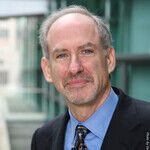Human beings tend to be creatures of the moment, which has made dealing with climate change difficult. Odds are very few of us will be around when vast portions of the Earth become uninhabitable. In the meantime, what's a few polar bears?
Obviously this is a massively irresponsible view to take, but until now, it's been how most of the world's nations have reacted to the threat posed by rising atmospheric temperatures caused by carbon emissions. Since 1992, international meetings have been held almost annually seeking some kind of global strategy. For various reasons, most having to do with an unwillingness to sacrifice today for tomorrow, the meetings have come to naught.
Now comes a ray of hope. Against all odds, the 21st Conference of the Parties to the U.N. Framework Convention on Climate Change succeeded where the 20 previous COPs had failed. Never mind the Kyoto Protocol or the Copenhagen Accords. The Paris Agreement, announced Saturday, says that the nations of the world for the first time agree that global warming is an existential threat requiring concerted, ongoing, accountable national actions.
We have entered, at least tentatively, an era that has needed the coinage of a new word: decarbonization.
The Paris Agreement signals consensus that the fossil fuel era must end — which is fine, unless you're employed by or heavily invested in industries that produce or depend on carbon-based fuels.
The Paris Agreement will succeed only insofar as banks and investors begin shifting money out of carbon-based fuels into alternative energy sources. To judge Paris, it will help to follow the advice offered by Deep Throat during the Watergate investigation: Follow the money.
Much has been made of the agreement's commitment to holding the increase in the global average temperature to "well below 2 degrees C above pre-industrial levels and to pursue efforts to limit the temperature increase to 1.5 degrees C above pre-industrial levels."
Two degrees Celsius (3.6 degrees Fahrenheit) by century's end has been seen as the magic number needed to prevent the worst effects of climate change — catastrophic rises in sea levels, desertification of land that is now arable and cataclysmic drought and water wars.
The Earth's average temperature is already nearly 1 degree Celsius higher than it was before the industrial age began burning coal and oil in earnest. With the reductions now in place, temperatures will rise by 2.7 degrees by century's end. That's better than the 4-degree arc that the world was on 20 years ago, but would still pose massive problems — super hurricanes and a possible shift in ocean currents among them.
But to hold things under 1.5 degrees would require the world to stop emitting carbon altogether by 2060.
What the Paris Agreement does is acknowledge this reality, and say that avoiding it is a worthwhile goal. It doesn't sound like much, but if that's where the world's thinking is, and the money follows it, it might just happen.
Still there is much room for skepticism. James Hansen of Columbia University, the former NASA scientist generally regarded as the Paul Revere of global warming, called the agreement a "fraud" and "worthless words. There is no action, just promises."
"As long as fossil fuels appear to be the cheapest fuels out there, they will be continued to be burned," Mr. Hansen told the British newspaper The Guardian.
It's true there's little in the way of enforcement built into the agreement. Nations developed their own goals for cutting carbon. Every five years the climate group will assemble to check progress, but there are no sanctions in place.
Nor, for that matter, did the Paris group adopt a system of taxing carbon. Making carbon a taxable luxury, so to speak, would make alternative power sources far more attractive. But the idea has been a political nonstarter in most countries, including the United States, despite support from liberal and conservative economists alike.
Domestic politics lay behind every consideration in Paris. Island nations like the Maldives and the Marshall Islands, which could be wiped out by rising sea levels, obviously pushed for stricter limits and more drastic action.
The Obama administration, knowing that congressional approval would be needed for an international agreement with binding obligations, fought desperately to keep the word "should" in place and not the word "shall."
In the end, the Paris negotiators got as much as they could politically and finessed the rest. Developed nations promised $100 billion a year to help underdeveloped nations meet their goals, helping to mitigate the old objection that developed nations caused most of the problems.
It helped that public opinion has begun to move. It helped that 2015 will be the hottest year on record. It helped that as the meetings were underway, much of the Northern Hemisphere was experiencing a weirdly warm December and many of the biggest cities in China were being choked by smog.
China, once the outlier at climate talks with its damn-the-emissions, full-speed-ahead attitude, has begun to come around. Its burgeoning middle class would like clean air; even one-party rulers have political considerations.
And it helped that the United States was finally seen by the rest of the world as willing to do its part. President Barack Obama has used executive orders to create a Clean Power Plan. Despite Republican opposition, he has brought rationality to U.S. climate policies. The tireless work in Paris by U.S. negotiators, headed by Secretary of State John Kerry, helped put the exceptional back into U.S. exceptionalism. It helped that France, though racked with immediate concerns about terrorism, stepped up to drive the deal.
Maybe it won't work. Maybe human nature will insist on short-term imperatives instead of long-term good. Maybe the money will chase quarterly gains. Maybe the country will elect a Republican president less concerned with this tough form of international leadership.
But at least future generations will know that our generation gave it a shot.
REPRINTED FROM THE ST LOUIS POST DISPATCH
Photo credit: Christopher Michel






View Comments